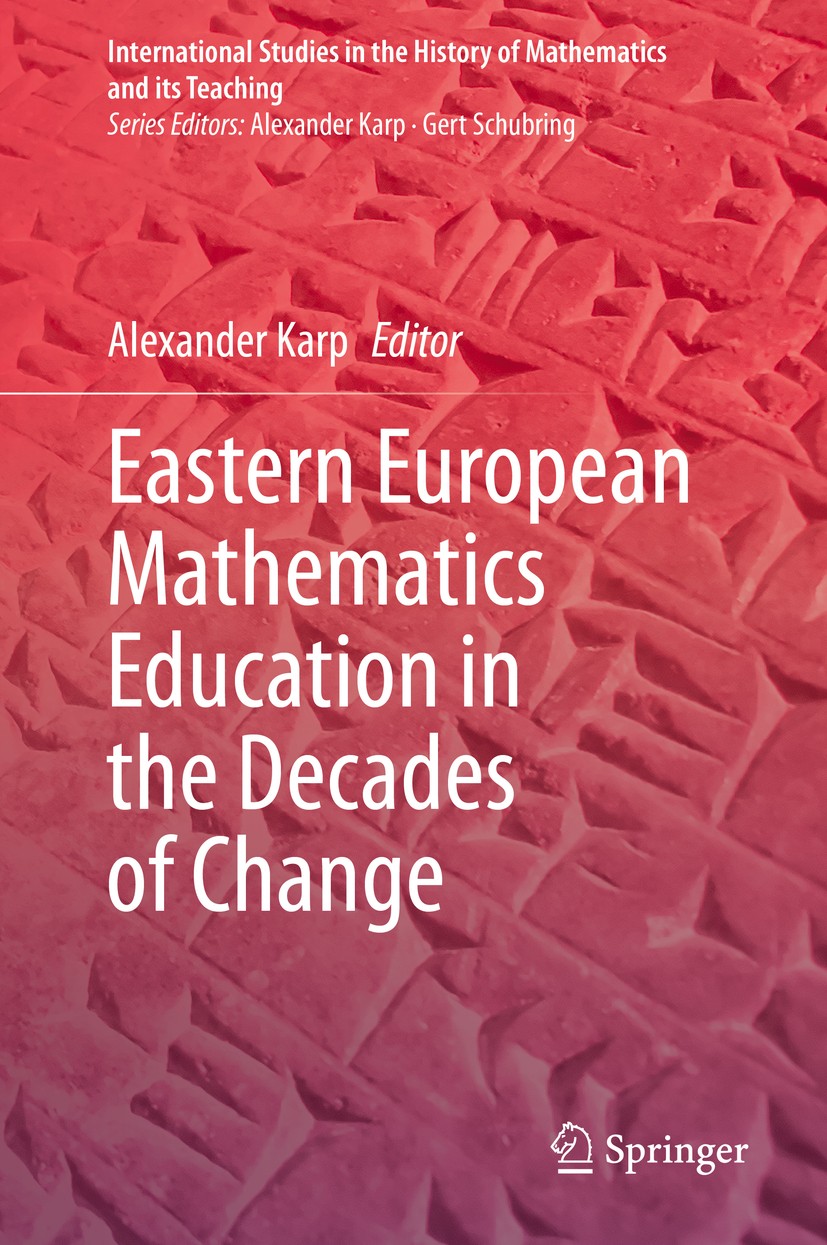| 书目名称 | Eastern European Mathematics Education in the Decades of Change |
| 编辑 | Alexander Karp |
| 视频video | http://file.papertrans.cn/302/301014/301014.mp4 |
| 概述 | Presents the panorama of the developments in mathematics education during the period of political changes and reforms.Uniquely explores the question of how social and political changes influenced the |
| 丛书名称 | International Studies in the History of Mathematics and its Teaching |
| 图书封面 |  |
| 描述 | This contributed volume is devoted to the recent history and evolution of mathematics education in Eastern Europe, exploring how it was influenced by social and political changes in this part of the world. Despite the broad recognition of the importance of these changes, little scholarship exists that examines the ways in which they were followed by changes in the teaching of mathematics in the post-socialist countries. Indeed, the analyzed processes are complex and vary across the states. Accordingly, this book touches on many factors--including differences in cultures and traditions – that find expression in the teaching of mathematics. .Specifically, this volume seeks to explore what changes there were in education in general and in the position of mathematics in school education in these years, and how these changes may be explained and documented; what changes there were in the content of mathematics education and its assessment, and how were they motivated andadopted; what new textbooks appeared and what new methodological ideas were offered in them; how and why mathematics teacher education and/or professional development changed; what was the role (if any) of foreign influe |
| 出版日期 | Book 2020 |
| 关键词 | Mathematics education in the Czech Republic; Mathematics education in Eastern Germany; Mathematics edu |
| 版次 | 1 |
| doi | https://doi.org/10.1007/978-3-030-38744-0 |
| isbn_softcover | 978-3-030-38746-4 |
| isbn_ebook | 978-3-030-38744-0Series ISSN 2524-8022 Series E-ISSN 2524-8030 |
| issn_series | 2524-8022 |
| copyright | Springer Nature Switzerland AG 2020 |
 |Archiver|手机版|小黑屋|
派博传思国际
( 京公网安备110108008328)
GMT+8, 2026-2-9 10:53
|Archiver|手机版|小黑屋|
派博传思国际
( 京公网安备110108008328)
GMT+8, 2026-2-9 10:53


